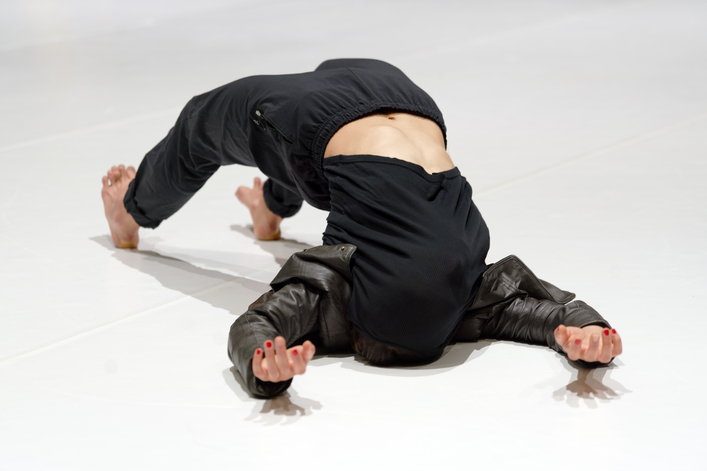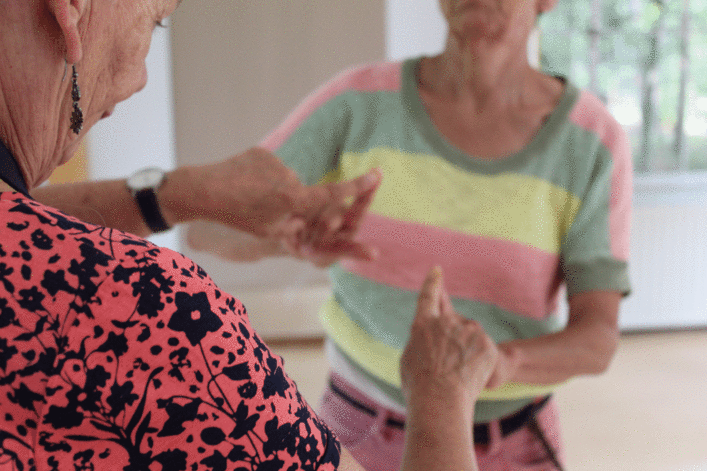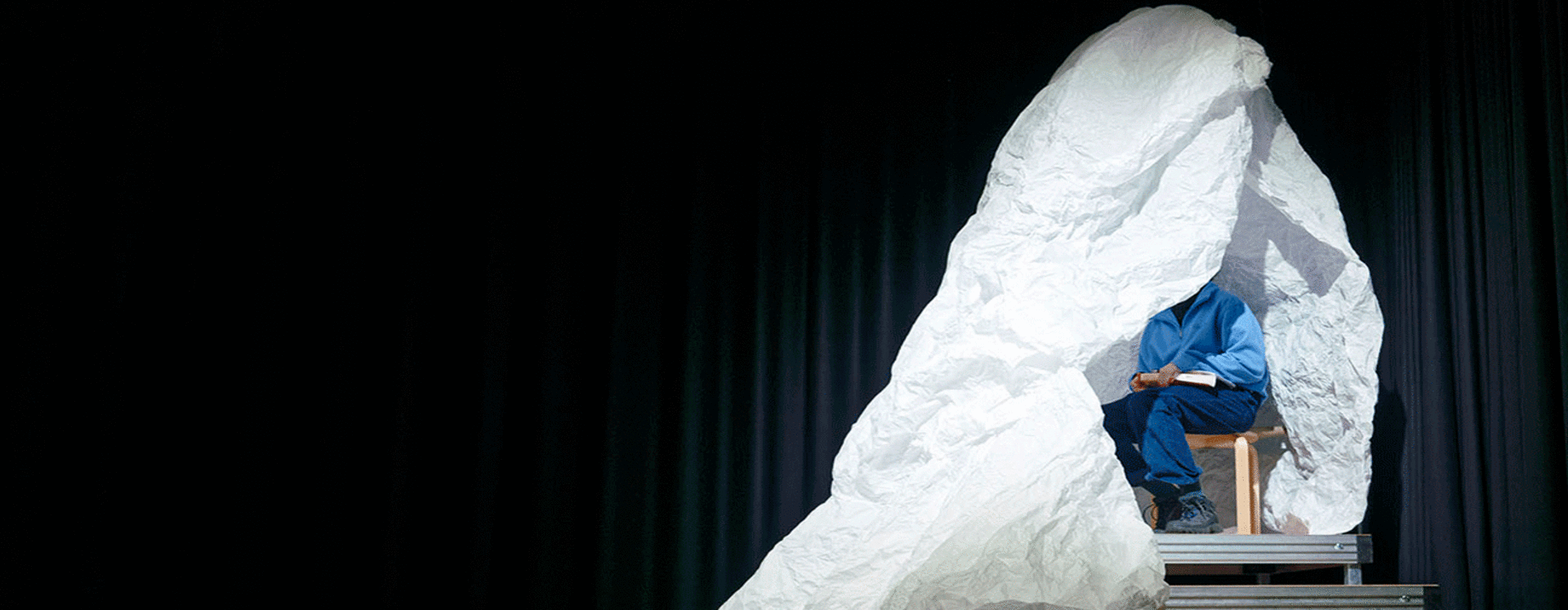Ways of Knowing & Not-Knowing
There is an intimate link between the mastery enacted through colonization and other forms of mastery that we often believe today to be harmless, worthwhile, even virtuous. To be characterized as the master of a language, or a literary tradition, or an instrument, for instance, is widely understood to be laudable. Yet as a pursuit, mastery invariably and relentlessly reaches toward the indiscriminate control over something—whether human or inhuman, animate or inanimate. Whether we desire mastery over a slave, an environment, or a body of texts, we are always returning to this primordial fracture—to the partial destruction of the object that the would-be master yearns to govern over completely.
Julietta Singh

If every rock is a hole (wip), Amparo González Sola. Photo: Thomas Lenden.

Practices of reciprocity. Exploring Reciprocity Project, Amparo González Sola. Photo: A González Sola.
Research under this theme is concerned with ways of knowing and not-knowing in performance and education. We consider how knowledges are created and shared in theatre and dance – for example, in and through the body and the senses, movement, images, objects, collaboration, with audiences – and how these ways of knowing interact with language and discourse. We explore the arts as sites of deep, embodied knowledge, but also consider performance as a process of unlearning and not-knowing in relation to habit, norms, convention and pre-existing ideas: particularly colonialism and humanism. We are interested both in how performance can help us to understand the world and how it can relate to the unknown; we are interested in performance’s capacity to occupy a state of openness to not-knowing as a form of expertise in itself. We are interested in rethinking education not as mastery but as an ongoing practice of transformation and becoming.
Many researchers in the ATD engage in artistic research in the performing arts – understood as epistemic inquiry conducted through artistic practice in theatre and dance, and transdisciplinary practices. Theatre and dance are understood as practices through which a wide range of questions, topics and problems can be addressed: those that are relevant for the artistic field, but also have an urgency for the arts understood as a socially and culturally engaged practice. Whilst great steps have been made in recent years, artistic research still often has to assert itself as a legitimate and equally valid mode of research relative to other forms of knowledge-production in institutional contexts.
At the ATD Lectorate, we aim to be attentive to the power relations at play in processes of knowledge production; informed by the idea that all knowledges are shaped by the conditions and contexts in and through which they are performed. Certain ways of knowing are privileged over others (the rational over the intuitive or emotional, for example); particular voices and communities are positioned as authorities and producers of knowledge over and above others.
– How and in what ways does performance produce knowledge?
– What kinds of knowledges are produced in and as theatre and dance?
– How can we document and archive the embodied knowledge produced in theatre and dance?
– How can performance open itself to the unknown or the not-yet known?
– What is a decolonial education in theatre and dance?
– How can the arts interact with other fields of knowledge such as science and philosophy?
Work in this theme might involve a wide range of practices and topics, including but not limited to:
- Performance as knowledge producing; knowledge-production as performance / performative
- Artistic research; practice research; research creation; arts as knowledge
- Embodied knowledge and situated knowledge in theatre and dance
- Rethinking education: decolonial, dehumanist and queer pedagogies
- Decolonializing knowledge – including the decolonization of the performing body; Indigenous wisdom and knowledge systems
- Transdisciplinary and interdisciplinary encounters
- Modes of not-knowing, unknowing, bewilderment, unlearning, listening
- Ethics and politics of knowledge; power relations between ways of knowing across disciplines, communities; epistemic justice;
- Expertise; technique; skill; training - after mastery
- Sharing performance knowledge: forms & formats of artistic research creation and publishing and education; questions of documentation, archive and legacy in relation to embodied knowledges
- Performance philosophy
